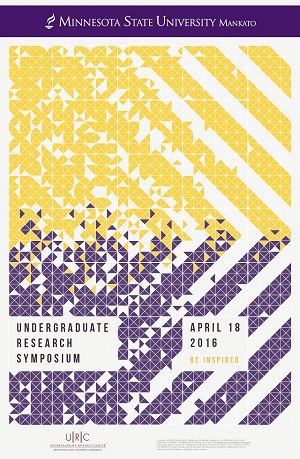Herman the German: From Ancient Warrior to Monument in the United States
Location
CSU Ballroom
Start Date
18-4-2016 2:00 PM
End Date
18-4-2016 3:30 PM
Student's Major
World Languages and Cultures
Student's College
Arts and Humanities
Mentor's Name
Nadja Krämer
Mentor's Department
World Languages and Cultures
Mentor's College
Arts and Humanities
Description
“Hermann the German” is a monument in New Ulm, Minnesota and considered a symbol of freedom and belonging by the German community. Yet, why would a monument dedicated to an ancient Germanic warrior and hero play such a dominant role in the self-definition of German immigrants to the U.S., a solid 2000 years after Hermann's successful battle against invading Roman armies? Hermann was not only the first recorded hero and unifier of his Germanic peoples, he also symbolizes freedom, strength, hope, heritage, and contributions within the USA. He represents a tangible identity that recalls adversities and the price of freedom regardless of historical point time. The focus of this research is to trace the adversarial discussion around the construction of the monument, the vision of its creators and the impact it had on German-American community in New Ulm and the U.S. The project compares and identifies the symbolic importance of the monument for the German-American community from the 19th century to contemporary times. It traces the conception of the idea, to the building of the monument, to its present day significance. The paper shows how the Hermann monument in New Ulm provides the foundation and maintenance of a German identity that reverberates with the contemporary descendants of the early German settlers not only in Brown County, Minnesota, but also all over the United States.
Herman the German: From Ancient Warrior to Monument in the United States
CSU Ballroom
“Hermann the German” is a monument in New Ulm, Minnesota and considered a symbol of freedom and belonging by the German community. Yet, why would a monument dedicated to an ancient Germanic warrior and hero play such a dominant role in the self-definition of German immigrants to the U.S., a solid 2000 years after Hermann's successful battle against invading Roman armies? Hermann was not only the first recorded hero and unifier of his Germanic peoples, he also symbolizes freedom, strength, hope, heritage, and contributions within the USA. He represents a tangible identity that recalls adversities and the price of freedom regardless of historical point time. The focus of this research is to trace the adversarial discussion around the construction of the monument, the vision of its creators and the impact it had on German-American community in New Ulm and the U.S. The project compares and identifies the symbolic importance of the monument for the German-American community from the 19th century to contemporary times. It traces the conception of the idea, to the building of the monument, to its present day significance. The paper shows how the Hermann monument in New Ulm provides the foundation and maintenance of a German identity that reverberates with the contemporary descendants of the early German settlers not only in Brown County, Minnesota, but also all over the United States.
Recommended Citation
Malecha, Katelynn and Jonathan Smith. "Herman the German: From Ancient Warrior to Monument in the United States." Undergraduate Research Symposium, Mankato, MN, April 18, 2016.
https://cornerstone.lib.mnsu.edu/urs/2016/poster-session-B/13




